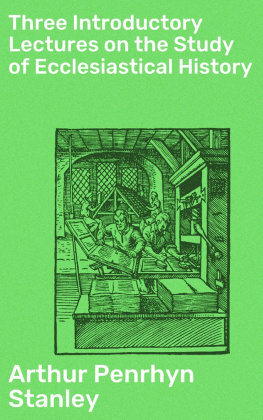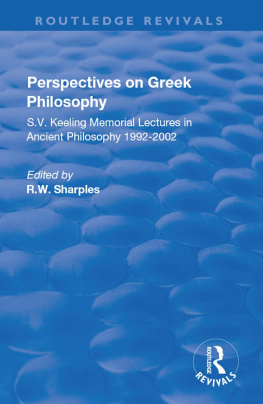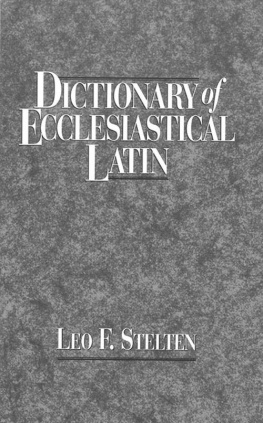Arthur Penrhyn Stanley - Three Introductory Lectures on the Study of Ecclesiastical History
Here you can read online Arthur Penrhyn Stanley - Three Introductory Lectures on the Study of Ecclesiastical History full text of the book (entire story) in english for free. Download pdf and epub, get meaning, cover and reviews about this ebook. year: 2016, publisher: Bibliolife DBA of Bibilio Bazaar II LLC, genre: Religion. Description of the work, (preface) as well as reviews are available. Best literature library LitArk.com created for fans of good reading and offers a wide selection of genres:
Romance novel
Science fiction
Adventure
Detective
Science
History
Home and family
Prose
Art
Politics
Computer
Non-fiction
Religion
Business
Children
Humor
Choose a favorite category and find really read worthwhile books. Enjoy immersion in the world of imagination, feel the emotions of the characters or learn something new for yourself, make an fascinating discovery.
- Book:Three Introductory Lectures on the Study of Ecclesiastical History
- Author:
- Publisher:Bibliolife DBA of Bibilio Bazaar II LLC
- Genre:
- Year:2016
- Rating:3 / 5
- Favourites:Add to favourites
- Your mark:
- 60
- 1
- 2
- 3
- 4
- 5
Three Introductory Lectures on the Study of Ecclesiastical History: summary, description and annotation
We offer to read an annotation, description, summary or preface (depends on what the author of the book "Three Introductory Lectures on the Study of Ecclesiastical History" wrote himself). If you haven't found the necessary information about the book — write in the comments, we will try to find it.
Three Introductory Lectures on the Study of Ecclesiastical History — read online for free the complete book (whole text) full work
Below is the text of the book, divided by pages. System saving the place of the last page read, allows you to conveniently read the book "Three Introductory Lectures on the Study of Ecclesiastical History" online for free, without having to search again every time where you left off. Put a bookmark, and you can go to the page where you finished reading at any time.
Font size:
Interval:
Bookmark:

ECCLESIASTICAL HISTORY.
When Christian the Pilgrim, in his progress towards the Celestial City, halted by the highway-side at the Palace of which the name was Beautiful, he was told, that"he should not depart till they had shewn him the rarities of that place. And first they had him into the study, where they shewed him records of the greatest antiquity;" in which was "the pedigree of the Lord of the hill, the Son of the Ancient of Days" "Here also were more fully recorded the acts that he had done, and the names of many hundreds that he had taken into his service; and how he had placed them in such habitations, that could neither by length of days nor decays of nature be dissolved. Then they read to him some of the worthy acts that some of his servants had done; as how they had subdued kingdoms, wrought righteousness, obtained promises, stopped the mouths of lions, quenched the violence of fire, escaped the edge of the sword, out of weakness were made strong, waxed valiant in fight, and turned to flight the armies of the aliens. Then they read again in another part of the records of the house, how willing their Lord was to receive in his favour any, even any, though they in time past had offered great affronts to his person and proceedings. Here also were several other histories of other famous things, of all which Christian had a view; as of things both ancient and modern, together with prophecies and predictions of things that have their certain accomplishment, both to the dread and amazement of enemies, and the comfort and solace of pilgrims."
Font size:
Interval:
Bookmark:
Similar books «Three Introductory Lectures on the Study of Ecclesiastical History»
Look at similar books to Three Introductory Lectures on the Study of Ecclesiastical History. We have selected literature similar in name and meaning in the hope of providing readers with more options to find new, interesting, not yet read works.
Discussion, reviews of the book Three Introductory Lectures on the Study of Ecclesiastical History and just readers' own opinions. Leave your comments, write what you think about the work, its meaning or the main characters. Specify what exactly you liked and what you didn't like, and why you think so.










